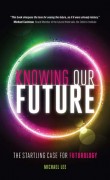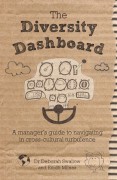Business and finance
Content is still king
2 October 2013 by Admin in Book publishing, Business and finance
There’s another great article from Marketing Week here, this time about curated content.
The article starts with some amazing numbers. We all know that the Web is rather big, but the actual scale is somewhat breath-taking. According to this article the indexed World Wide Web is estimated to contain nearly 4 billion pages. At the end of 2012 there were some 634 million websites, 51 million of which had been added that year. Every minute, one hundred hours of video are uploaded to YouTube.
So, in something quite so massive, it’s very easy for your website – and therefore your business – to simply disappear. Brands in every sector of business are faced with the challenge of engaging with their consumers through strong, pertinent content to compete effectively for consumers’ limited attention.
One way brands are engaging is through personalisation – learning about their customers’ browsing habits, usually through cookies, then delivering bespoke content based on that information. The result is often that a brand’s home page will vary depending on the customer accessing it.
But content remains at the core of successful online brands, whether it’s user generated, celebrity endorsed or simply authoritative because it is written by an acknowledged expert in the field. By engaging with content through these experts, the consumer’s experience is greatly enhanced.
 So it is particularly gratifying to read that content remains King – it’s the idea that has underpinned our business all these years. Our authors are acknowledged experts in their fields, and they’ve been briefed to write in a friendly, accessible manner that readers (i.e. consumers) relate to and trust. We don’t believe in ramming messages down people’s throats and our authors certainly don’t preach (they wouldn’t dare!) That’s why, over the years, our ideas database has provided many top brands with great content in order for them to engage successfully with their customers. Take a look at our Wordgen tab if you’d like to find out how you can harness the power of our inspirational ideas.
So it is particularly gratifying to read that content remains King – it’s the idea that has underpinned our business all these years. Our authors are acknowledged experts in their fields, and they’ve been briefed to write in a friendly, accessible manner that readers (i.e. consumers) relate to and trust. We don’t believe in ramming messages down people’s throats and our authors certainly don’t preach (they wouldn’t dare!) That’s why, over the years, our ideas database has provided many top brands with great content in order for them to engage successfully with their customers. Take a look at our Wordgen tab if you’d like to find out how you can harness the power of our inspirational ideas.
Here endeth the first lesson (what was that about preaching again…?)
The royal baby: a reality check
25 July 2013 by Infinite Ideas in Business and finance
By Michael Lee, founder of the Institute of Futurology (www.futurology.co.za)
The royal baby is not the sign of a progressive long-term future for the United Kingdom: a futurist’s perspective.
The monarchy is probably bad for Britain’s long-term social future. Human societies evolve towards increased degrees of freedom and equality before the law. Feudalism is gone. Slavery is proscribed. Women’s equal rights have reached many parts of the globe, as has education for all. Democracy is spreading throughout the world. Free access to information has accelerated under the impetus of the internet. In the long run, the world is heading, through painful struggle, for increased freedom and equality. It is in striving for social progress that countries and societies stay vital and adaptable to changing global conditions.
 But the monarchy, which diminishes both freedom and equality with its system of hereditary, unelected power, remains in control as constitutional head of state in Britain and its Commonwealth realms. If social cohesion is built on a foundation of freedom and equality before the law how can it be beneficial for British society to preserve into the twenty-first century a medieval institution the political principles of which plainly contradict those of democracy? Since Queen Elizabeth II is also the sovereign, or supreme governor, of her Commonwealth realms, including Canada, Australia, Papua New Guinea, New Zealand, and Jamaica, this issue is international in scope.
But the monarchy, which diminishes both freedom and equality with its system of hereditary, unelected power, remains in control as constitutional head of state in Britain and its Commonwealth realms. If social cohesion is built on a foundation of freedom and equality before the law how can it be beneficial for British society to preserve into the twenty-first century a medieval institution the political principles of which plainly contradict those of democracy? Since Queen Elizabeth II is also the sovereign, or supreme governor, of her Commonwealth realms, including Canada, Australia, Papua New Guinea, New Zealand, and Jamaica, this issue is international in scope.
While the media fawn over the Royal Family because it constitutes a source of endless news copy that, like stories of celebrities, increases sales, the underlying fact is that the monarchy is an antiquated political system which fosters ideas of human subservience and inequality.
It’s ironic that the nation which pioneered the modern concept of democracy, with its historic seeds in the Magna Carta of 1215, should have ended up as the world’s leading exponent of the modern constitutional monarchy. It was the rise of merchant power in Britain which provided a new political constituency demanding ever-greater parliamentary freedom from monarchical rule and aristocratic domination.
While Britain today has a demographically ageing population, which favours the survival of the monarchy in terms of ongoing electoral support, given that older societies tend to be more conservative and change-averse, there are already pressures on the country to reinvent itself as a highly diverse, globally competitive society which can halt its global decline. These growing pressures are likely to produce a new political class which may see the monarchy as an affront to modern-day freedom, equality and diversity. I imagine a new political party may arise in Britain in the next decade which will strive to create a freer, more cohesive society and one of its ideas will be to hold a referendum to decide on the future of the monarchy.
The rise of the movement for Scottish independence provides a model for this kind of wide-ranging constitutional sea-change in British politics. In September 2014 Scotland will choose whether or not to opt for independence and rebirth. From the birth of the Scottish National Party (SNP) in 1934, it will have taken 80 years to reach next year’s national referendum. That’s a lengthy trajectory to make progress in bringing about fundamental constitutional change.
My home country, South Africa, opted to control its own national destiny when the Republic of South Africa was constituted on 31 May 1961. Looking back now, this was an important moment in our national evolution. In 1994 an internationally acclaimed political miracle ended apartheid and inaugurated the presidency of our nation’s founding father, Nelson Mandela. We were once again choosing our own destiny and pushing our evolution as a society and a people in the direction of freedom and equality.
Constitutional change is measured in decades, not years. It is also measured in the political courage required to embrace a new future. Given that in the information age, the germination and spread of ideas has greatly accelerated, I would suggest it would take a new political republican party in the United Kingdom at the very least a full generation to arrive at a realistic chance of winning a referendum in Britain to abolish the monarchy. The British monarchy has long outlived predictions of its demise. In his ground-breaking 1901 book Anticipations, pioneering futurist H. G. Wells forecast the demise of the monarchy. This institution is still going strong in 2013, well over a century later.
The Queen herself is a person of great stature, extraordinary dignity and admirable personal qualities but the institution she heads perpetuates a subtle form of oppression by enshrining the rather toxic idea that unelected political power and privilege, allied to the social inequality of an aristocracy of elites, is acceptable in a progressive and progressing twenty-first century society.
 In the midst of our celebrations we’d be wise to take time to consider whether we can truly call ourselves free and progressive while the monarchy retains such power and privilege.
In the midst of our celebrations we’d be wise to take time to consider whether we can truly call ourselves free and progressive while the monarchy retains such power and privilege.
Michael Lee’s book Knowing our Future – the startling case for futurology is available at the publisher or on Amazon.
How to boost your business with a book
18 July 2013 by Admin in Book publishing, Business and finance
The world of print has taken something of a pounding over the last few years. Just look at the newspaper industry and how it’s struggled to cope with the plethora of free news sites. E-book readers – especially Amazon’s Kindle – have changed the publishing landscape beyond recognition. A business model that has worked well for well over a hundred years has all but disintegrated.
We’ve blogged before about the huge changes in the world of publishing and like most publishers, we upload e-book editions of our books on all the major platforms. A digital book is indeed an important way to disseminate knowledge. But we’ve always been of the opinion that a physical printed book creates the most impact.
We’ve worked with established and new authors alike, bringing their books to market around the world, and over the years we’ve published a lot of books with business consultants. Our view has always been that a printed book offers a great way to promote a consulting business.
 So to test our theory we thought we’d do some research. We emailed some ten thousand consultants in the UK, identifying published authors and asking them if having a book had had a positive effect on their businesses. The answers we received made very interesting reading. They can be summarised thus:
So to test our theory we thought we’d do some research. We emailed some ten thousand consultants in the UK, identifying published authors and asking them if having a book had had a positive effect on their businesses. The answers we received made very interesting reading. They can be summarised thus:
- Nearly 75% of respondents told us that they had written their book in order to promote their business;
- 72% of respondents claimed that as a result of being published recognition of their business’ brand increased;
- Nearly 60% claimed that they picked up more speaking events after being published;
- 65% stated that being published gained them more clients.
That’s quite compelling, and it supports some of our own anecdotal evidence (one of our authors gained a six figure consulting role as a result of his book being bought at an airport bookshop, another ended up as a speaker at the World Economic Forum at Davos two years in succession).
A well published physical book is the best calling card a consultant can have. Books have a high perceived value and rarely get thrown away, so once they’ve been purchased by a reader, they tend to stay with the reader. A physical book without doubt establishes a consultant’s authority and can have a very positive effect on a business.
If you’d like more information, either on the survey results or getting into print with Infinite Ideas, do get in touch.
Customer engagement strategies: The future of marketing
25 June 2013 by Admin in Business and finance
We’re always banging on about delivering content to consumers at the moment they most need it. Examples? Well, interview technique advice might best be read on your smart phone half an hour before the interview. Or public speaking tips right before you take the stage. That’s the beauty of mobile communications.
Sponsored content provided in this way does offer brands great ways to communicate and to enhance consumer loyalty and engagement. There are a couple of great examples of this from Brazil on the Springwise roundup. Hellmann’s are offering recipe advice to shoppers with a trolley-mounted tablet. Genius. And then there’s the test drives being offered to motorists who break down. Chevrolet turn up with the tow truck and the lucky motorist gets to drive their car home – free. A great way for a brand to engage.
 Another thing we’re quite keen on at Infinite Ideas is having a drink when you want one, so we were also struck by a South African initiative for beer lovers at music festivals. Using your mobile a drone swoops in and delivers you a refreshing tinny. It’s great that drone technology can be used for some positive purpose. It’s on that same Springwise roundup.
Another thing we’re quite keen on at Infinite Ideas is having a drink when you want one, so we were also struck by a South African initiative for beer lovers at music festivals. Using your mobile a drone swoops in and delivers you a refreshing tinny. It’s great that drone technology can be used for some positive purpose. It’s on that same Springwise roundup.
Cheers!
Brand enhancement: another thought-provoking argument
19 June 2013 by Admin in Business and finance
Here’s another thought-provoking argument about fast food brands and their use of a Disney tie-in to enhance their brand. But it seems to us it’s all a bit old hat (and the one comment on the site as I write this would seem to agree with me). MacDonald’s and Burger King have been doing this kind of thing for ages and so the argument goes that it probably works in terms of engaging with kids and, more importantly, their parents. But haven’t these brands got some real social responsibility in terms of trying to get young people to eat healthily? Is a tie in with Monsters Inc. going to do anything to reduce obesity in this country?
 Yeah, I know, it isn’t their remit to get kids to eat healthily. It’s their remit to increase their investors’ dividends (oh I’m such an old leftie!) The operative word in the article is ‘healthier’ (‘In-store training has been provided to staff to improve their interaction with children and encourage them to choose healthier options.’) I’m not a nutritionist (my waist line bears that out) but I reckon their healthier options are still packed with salt fat and sugar, all of which probably exceed the recommended daily intake.
Yeah, I know, it isn’t their remit to get kids to eat healthily. It’s their remit to increase their investors’ dividends (oh I’m such an old leftie!) The operative word in the article is ‘healthier’ (‘In-store training has been provided to staff to improve their interaction with children and encourage them to choose healthier options.’) I’m not a nutritionist (my waist line bears that out) but I reckon their healthier options are still packed with salt fat and sugar, all of which probably exceed the recommended daily intake.
It all just seems a tad lazy on the part of the marketers involved. Bung a few million at a big brand for a tie in – job done.
Let me get my soap box out again (sorry) but shouldn’t brands be trying to engage with their customers through intelligently produced, interesting content? I mean interesting, well written, properly informative content that might – just might – make people properly aware of what they are actually feeding their kids? Surely with a bit of intelligent thinking, brands can increase their consumer engagement and improve customer loyalty?
Anyway, I’ve put my soap box away and am heading off for a waistline-saving Subway feast with a Big Mac for pudding. Now where’s the harm in that?
Surviving and thriving in cross-cultural turbulence at work
13 June 2013 by Admin in Business and finance, Lifestyle
Unless you never venture beyond your home town, you’ll know that engaging with a person from a different background, sometimes under unusual and unpredictable circumstances, or in a new environment, requires a certain amount of understanding – or cultural intelligence. Often in life we need to modify our behaviour – our body language, the way we speak or the way we use humour, for example – in order to blend in. In business this understanding can be achieved through cross-cultural training; it’s becoming increasingly important with the intensification of globalisation, as foreign business escalates within corporations and SMEs alike.
As any good manager will know, the absence of cross-cultural intelligence in the workplace can impede productivity, inhibiting performance and preventing organisations from succeeding fully in their chosen markets. If you’re one such manager, you’ll be relieved to know that we’ve just published the antidote to your cultural nightmare. Packed with fun graphics and indispensable advice, The diversity dashboard is a breakthrough quick reference guide that will help you to bridge cultural gaps using practical insights and the clever analogy of a pilot’s cockpit – you need a triple A rating to operate your plane; if you’re struggling to attain your wings and become culturally competent, remember these three As:
- Awareness of your own culture: knowledge about yourself and your core values and how these are expressed in attitudes, behaviours and communication in the workplace;
- Assessment of other cultures: awareness of others and the ability to compare and contrast otherness with various tools and techniques;
- Action: continuing curiosity to learn more, the willingness to adapt and be flexible, and the ability to identify and respond creatively to cultural challenges and conflicts in ways that both respect and engage the other person.
Co-written by intercultural management consultant Dr Deborah Swallow and experienced motivational speaker Eilidh Milnes, this essential guide adopts a fun and realistic approach to a complex, often overlooked subject. We’re delighted that the world’s foremost culture specialist, Fons Trompenaars, seems to agree.
A rich and invaluable resource … precise, accessible advice on handling cross-cultural differences in today’s frenetic business world.
Fons Trompenaars, author of the bestselling Riding the Waves of Culture

